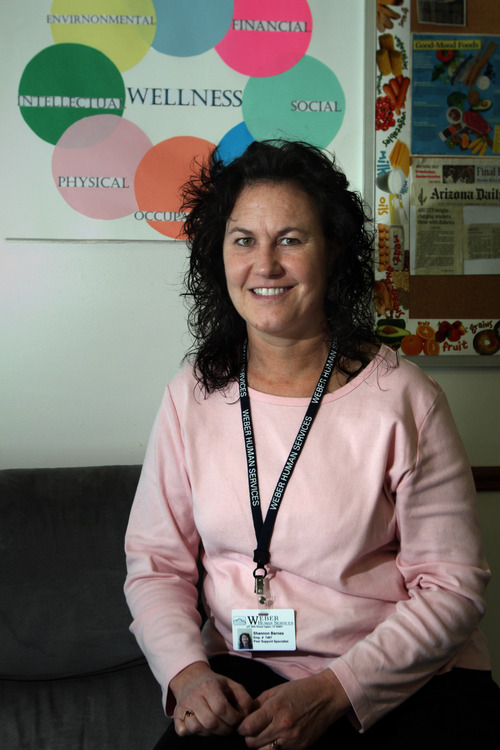This is an archived article that was published on sltrib.com in 2013, and information in the article may be outdated. It is provided only for personal research purposes and may not be reprinted.
Shannon Varn has dropped 15 pounds and silenced the voices in her head.
The Ogden woman credits her improved physical and mental health to a hot concept in health care: jointly providing both types of care in one place.
At the Wellness Clinic, mental health clients of Weber Human Services can now see a primary care physician in the same clinic where they get therapy and psychiatric medications. Research has shown mental health patients can struggle to stay physically healthy.
"I don't see why I should be sick all the time just because I have a mental illness," says Varn.
A bill sailing through the Utah Legislature aims to promote that kind of integration, hoping to improve health and ultimately save money.
HB57, sponsored by Rep. Dean Sanpei, R-Provo, would require the state Division of Substance Abuse and Mental Health to promote and evaluate integrated programs that address substance abuse, mental health and physical health care needs.
People who are severely and persistently mentally ill — the ones treated by government-funded mental health services — die 25 years earlier than the rest of the population, Sanpei said, citing national research. Preventable medical conditions are their leading cause of death, he said. And they have higher rates of hypertension, diabetes, obesity and asthma, and they're less likely to receive good medical care.
But the bill, which has passed the House and awaits full Senate action, provides no money to create integrated programs.
And that may prove a problem to creating them. The Ogden clinic is funded by a $4.5 million federal grant — one of just 70 available. Kevin Eastman, director of Weber Human Services, supports Sanpei's bill, and said competition has only grown for the grants.
"That's the challenge, building relationships, finding ways to fund it," he said.
Weber Human Services' clients are referred to its Wellness Clinic if they don't have a primary care doctor or if they haven't seen their doctor within the past year. At the clinic, they can see their mental health therapist and psychiatrist and then step across the hall to see their primary care doctor, provided by the Midtown Community Health Center.
The 840 patients who have signed up also get access to free wellness classes on nutrition, stress management, exercise and goal setting, said Karen Bassett, who helps oversee the clinic.
"We bring the doctor [to them], but just as important to us is we bring some wellness options for them," she said.
Data she provided show many patients have either lowered their blood pressure, cholesterol or body mass index.
"A lot of those people who didn't have any health [care before the integration] went to the emergency room," Eastman said.
Bassett said national studies have shown that integrated programs reduce medical costs by 17 percent, compared to a jump in costs of 12 percent in the control groups. She said the studies also show it costs $250 a patient per year to integrate, resulting in $500 savings in medical costs.
Those savings would be realized by Medicaid, since most of the patients at the clinic are enrolled in that government program.
Varn said she likes the convienience of the Wellness clinic, where there is also a pharmacy. She said the real value is in the wellness classes, which she also helps teach as a peer support specialist.
Varn said she's doing yoga, changed her diet and feels more mentally stable. The symptoms of the 46-year-old's schizoaffective disorder — hearing voices, paranoia and anxiety — have diminished.
"I have a balanced life," she said. "I work and play and I take care of my mental and physical health." —
What's next
HB57 has passed the House and a Senate committee and is awaiting a second reading in the Senate.



